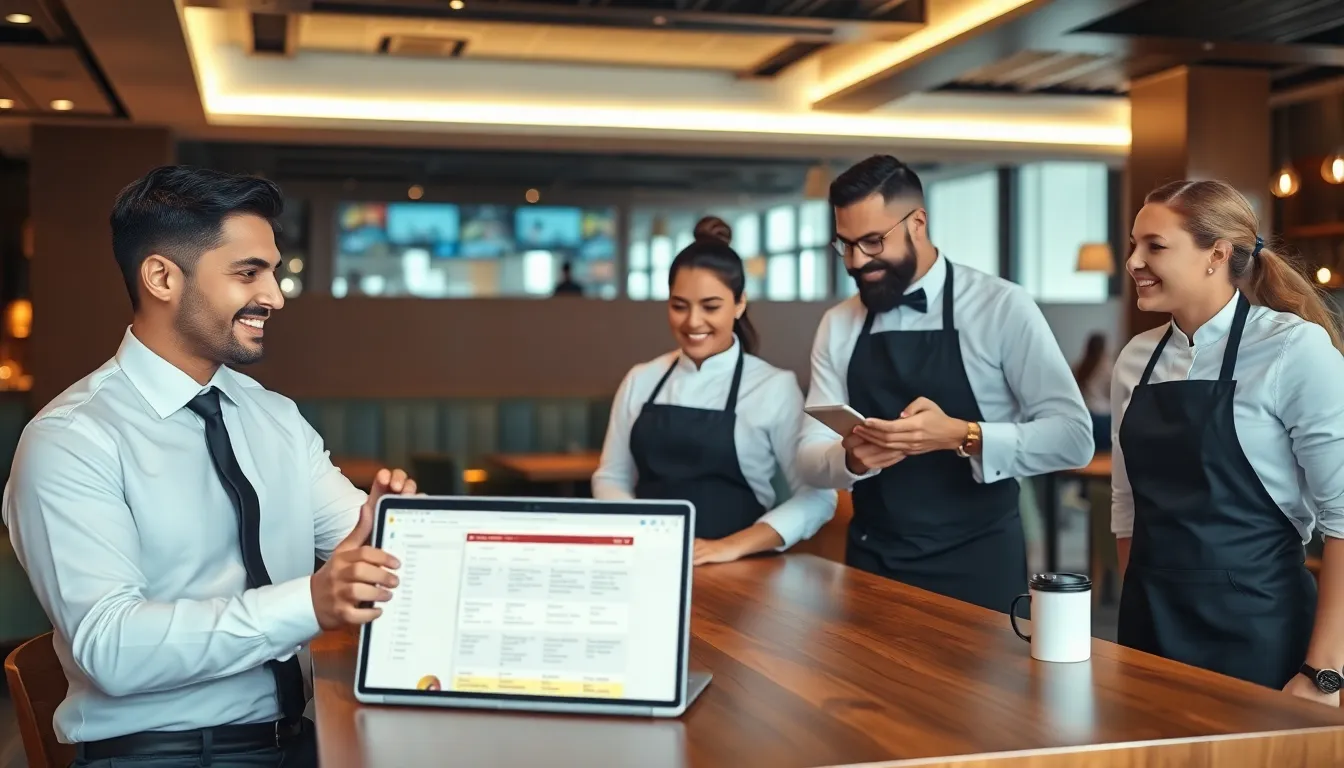Table of Contents
ToggleIn the bustling environment of a restaurant, leadership can feel a bit like herding cats, if those cats were juggling knives while trying to make artisanal salads. But fret not. Leadership within restaurants is more than just putting out fires: it’s about crafting a harmonious atmosphere where innovation thrives and teams flourish. In this text, we’ll jump into essential lessons every restaurant leader should embrace to ensure they not only survive but thrive in the competitive culinary landscape.
Understanding Effective Leadership in Restaurants

Effective leadership can be the difference between a restaurant that flourishes and one that flounders. Good leaders don’t just manage, they inspire, motivate, and guide their teams.
The Importance of Communication Skills
Communication serves as the backbone of any successful restaurant. Imagine a busy dinner service where the kitchen and waitstaff are out of sync. Chaos ensues. To avoid such scenarios, leaders must cultivate strong communication skills. They should practice active listening, encouraging team members to express their ideas and concerns. This transparency fosters an environment where everyone feels valued and heard. As a result, not only does morale improve, but efficiency does too.
Building Trust Within Your Team
Trust can make or break any team. When employees feel trusted, they are more likely to take initiative and go the extra mile. Leaders should show vulnerability, share their experiences, and be open about decision-making processes. Consider maintaining an open-door policy where team members feel comfortable sharing feedback or discussing issues. This approach cultivates a strong sense of belonging and loyalty, which can significantly enhance teamwork and productivity.
Embracing Diversity in Leadership
Diversity isn’t just a buzzword: it’s a catalyst for innovation and creativity. Restaurants that embrace diversity in their leadership often see enhanced problem-solving skills and more dynamic menu offerings.
Fostering a Positive Work Environment
A diverse workplace is vital for promoting a positive work atmosphere. Leaders should strive to create cultures that celebrate different backgrounds and perspectives. Organizing team-building activities that reflect various cultures can expose employees to different viewpoints. Also, recognizing employees’ unique contributions enhances innovation and cultivates camaraderie, transforming a typical workplace into a thriving community.
Encouraging Employee Development and Growth
Investing in employee development isn’t just good for the staff: it’s beneficial for the entire restaurant. When employees grow, the business flourishes.
Setting Clear Expectations and Goals
Defining roles and expectations helps guide employees in their work. Leaders should set achievable goals, allowing staff to understand their contributions better. This clarity fosters a sense of purpose and direction, eventually enhancing overall performance.
Implementing Effective Feedback Mechanisms
Regular feedback is crucial. Rather than waiting for annual reviews, leaders should create a constant feedback loop. This includes acknowledging successes and providing constructive criticism. Implementing peer feedback sessions allows employees to learn from one another, fostering a culture of continuous improvement.
The Role of Adaptability in Leadership
In the restaurant industry, change is the only constant. Effective leaders must embrace adaptability to navigate evolving market trends and challenges.
Navigating Challenges and Change
Leaders often need to pivot quickly. Whether adapting to a sudden supply chain disruption or shifting consumer preferences, flexibility is key. Utilizing scenario planning can help leaders anticipate potential challenges and prepare their teams accordingly. This proactive approach mitigates risks and maintains operations smoothly.
Staying Ahead of Industry Trends
Continuous learning and awareness of industry trends is essential for restaurant leaders. Engaging with industry publications, attending workshops, and connecting with other leaders can provide valuable insights. By staying informed, leaders can make strategic decisions that keep their restaurant competitive, serving not just food but a unique dining experience.




